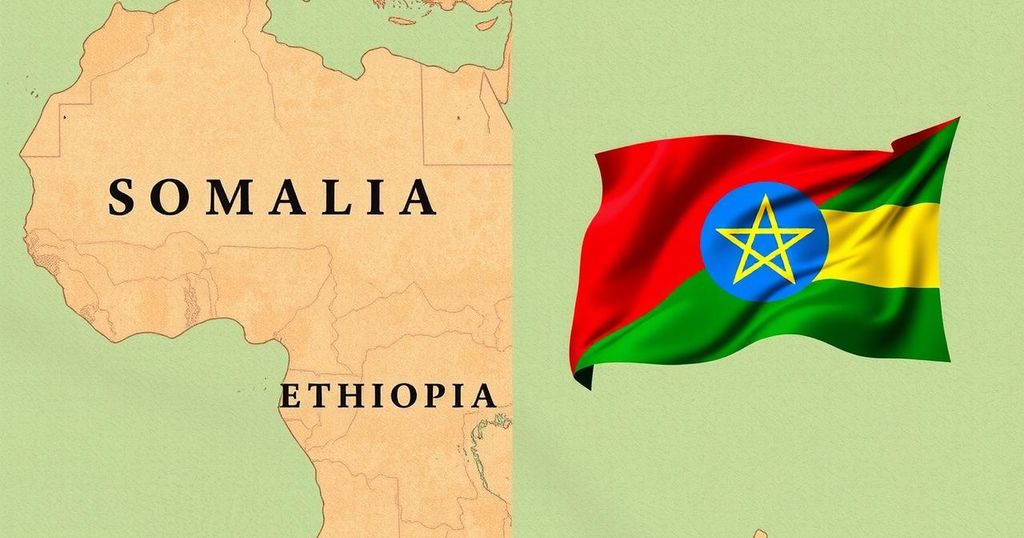The African Union has called for Ethiopia and Somalia to swiftly implement a new agreement to ease tensions over Ethiopia’s access to the sea. The deal follows prior conflict stemming from Ethiopia’s agreement with Somaliland, leading to concerns over sovereignty and regional stability. Turkish negotiations concluded with an agreement viewed as a significant step towards cooperation and commercial collaboration between the two nations. However, questions remain regarding the implications for existing agreements with Somaliland, as the political landscape continues to evolve in East Africa.
In a decisive move to promote regional stability, the African Union has urged Ethiopia and Somalia to promptly execute a recent agreement aimed at alleviating tensions over Ethiopia’s access to the sea. The two nations have been embroiled in conflict since January when Ethiopia signed a deal with Somaliland, a self-declared independent region in Somalia, allowing it to lease coastal territory for port and military use. Somalia condemned this agreement, asserting that it undermined its sovereignty and raised concerns over potential conflict in the region.
Turkish-brokered negotiations concluded with an ‘historic’ deal between Ethiopian Prime Minister Abiy Ahmed and Somali President Hassan Sheikh Mohamud. The agreement signifies a commitment to address mutual interests and facilitate Ethiopia’s long-desired access to maritime resources. Following these talks, the African Union emphasized the urgency of implementing the agreed-upon measures without delay.
The agreement detailed intentions to work collaboratively on commercial and bilateral arrangements to ensure Ethiopia’s secure access to the sea while respecting Somalia’s sovereignty. Technical discussions aimed at refining this accord are to commence by February and conclude within four months. International leaders, including U.S. Secretary of State Antony Blinken and UN Secretary-General António Guterres, expressed their anticipation for successful negotiations that honor each nation’s territorial integrity. Despite the hopeful developments, questions remain regarding the relationship between this agreement and the controversial memorandum between Ethiopia and Somaliland, prompting skepticism from officials in Somaliland who assert that the original deal remains intact.
In light of rising tensions, Somalia has fortified its alliances, particularly with historical rival Egypt, while expelling Ethiopia’s ambassador and excluding Ethiopian troops from a new peacekeeping force aimed at combating the Al-Shabab insurgents. Ethiopian authorities have yet to publicly clarify their stance on the Somaliland agreement amidst these ongoing discussions, suggesting a complex geopolitical landscape in East Africa.
The ongoing rift between Ethiopia and Somalia stems from a deal brokered by Ethiopia with Somaliland, an autonomous region claiming independence from Somalia since 1991. This agreement, which allows Ethiopia to lease land for strategic military and economic purposes, has ignited fears of conflict and further complications in an already volatile region. The African Union’s call for swift implementation of a new agreement highlights the critical need for regional stability and cooperation, especially as past tensions have led to an escalation in militaristic postures.
The urgency expressed by the African Union for Ethiopia and Somalia to implement their agreement without delay underscores a collective desire for peace and cooperation in East Africa. While the agreement lays groundwork for Ethiopia’s access to the sea, it also poses challenges due to existing tensions with Somaliland and international diplomatic complexities. The coming months will be crucial as technical discussions commence, highlighting the delicate balance of interests at play in this geopolitically sensitive region.
Original Source: www.arabnews.com







